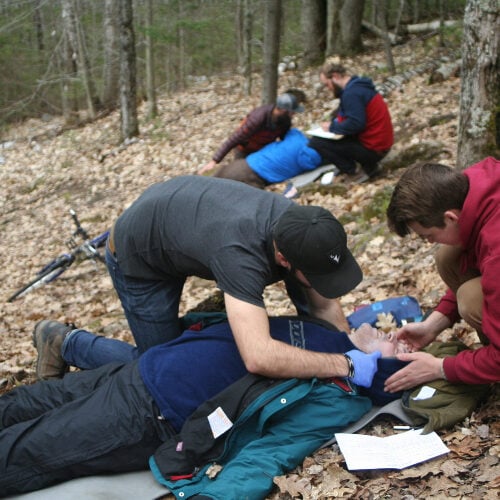
When Should Spinal Immobilization Be Implemented Per NEXUS?
Question: When a head injury occurs, should spinal immobilization be immediate if the victim initially fails the focused spine assessment questions, and how does the patient’s reliability factor into this decision?
Survival Med’s Answer: The NEXUS criteria are guidelines used by healthcare providers to assess the necessity of spinal immobilization after a traumatic incident, like a motorcycle crash.
These criteria aid in identifying individuals at a low risk of significant spinal injury, potentially eliminating the need for immobilization.
The NEXUS criteria are:
- Absence of midline cervical tenderness
- No evidence of intoxication (alcohol or drugs)
- Normal level of alertness and mental status (AOx4)
- No focal neurological deficits (e.g., weakness, numbness, tingling)
- No distracting injuries
During assessment, you should maintain spinal immobilization until evaluation is complete.
In scenarios where the victim swiftly returns to baseline mental status and exhibits no concerning signs, the NEXUS criteria would typically indicate that spinal immobilization is unnecessary, especially if other factors are absent as well.
However, it’s crucial to recognize the unique factors of each case.
For example, in cases that combine a low risk of spinal injury plus urgent issues like hemorrhage, venomous bites or stings, cardiac problems, stroke, or potential brain bleeds, minimizing spinal immobilization may speed up evacuation and treatment for these more life-threatening issues.





















